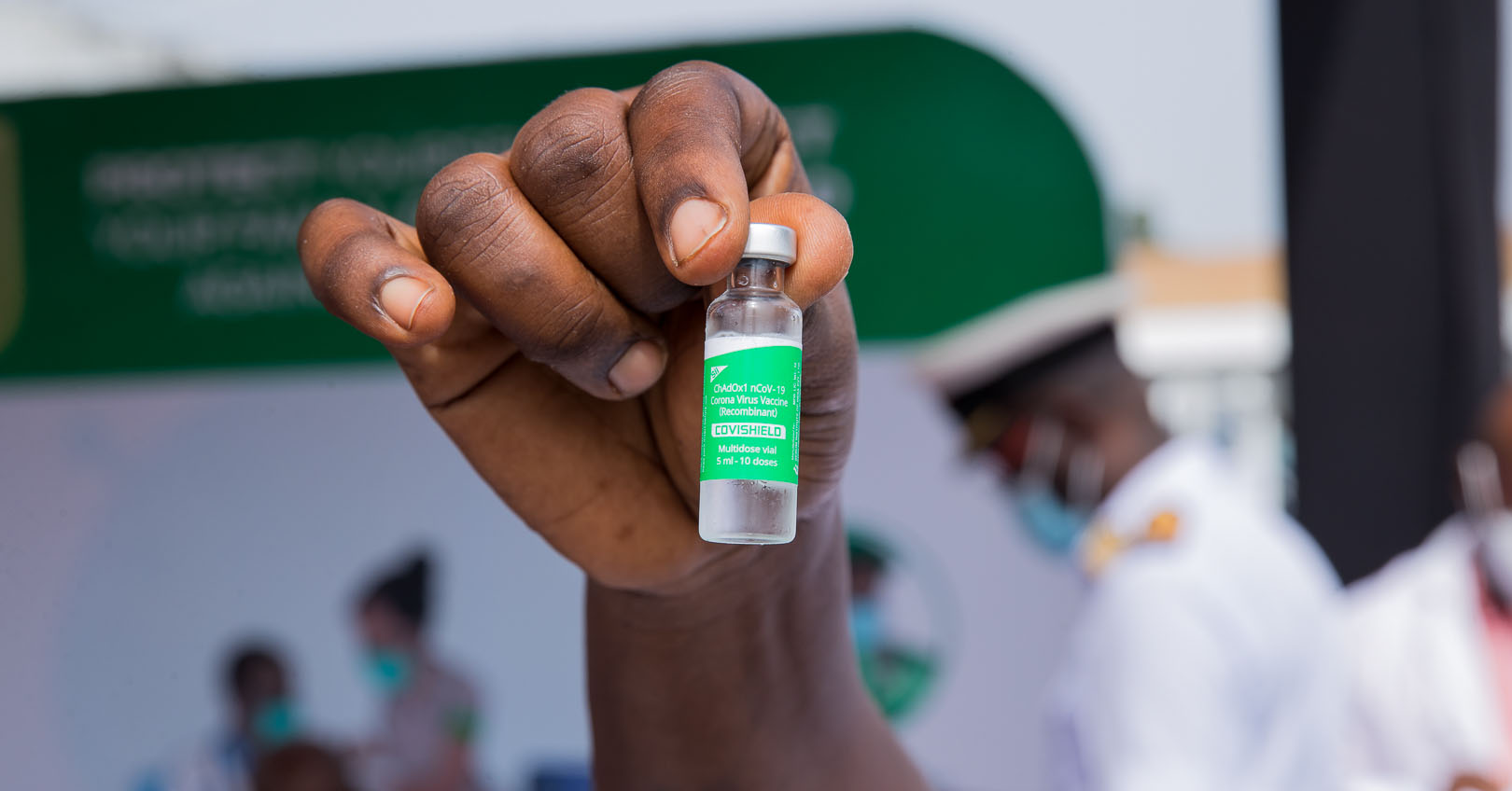
by Milap Patel and Teddy Ostrow
As many of the world’s richest nations continue the long and troubled process of lining up their citizens for vaccines against COVID-19, it has become ever clearer that the poorest countries will be left further and further behind in the race to vaccinate their populations. Some have called this state of affairs “vaccine apartheid.” So naturally, ears are perked at the news that the U.S. promised last month to contribute to COVAX, an international initiative rejected by the previous administration, to ostensibly assist these countries.
Unfortunately, with Big Pharma’s interests at its center, COVAX is a woefully inadequate tool for ensuring quick and equitable access to vaccines.
What Is COVAX?
In 2020, a collection of Global North countries and their corporate interests decided to concoct COVAX, a complicated, private-sector influenced, “multi-stakeholder group.” The group is often described simply as a “United Nations-backed” public endeavor, but what is often not mentioned is the inclusion and power of pharmaceutical corporations in the initiative. In what would be regarded as self-serving anywhere else, COVAX was set up as a financing mechanism to facilitate the purchase and resale of the vaccine from those same pharma companies, with capital provided primarily by rich nations.
As investigated by the Transnational Institute and Friends of the Earth International, the governance underpinnings and key decisions made by this group are institutionally flawed from a human rights and public health perspective. Foremost among them is its failure to take up the call by developing countries to expand vaccine access by relaxing intellectual property rules on COVID-19 vaccines—a much-needed action that the World Trade Organization has once again failed to adopt just last week. We should consider this an endorsement of supercharged profits for Big Pharma by Global North countries. In COVAX’s governance, Big Pharma is afforded stakeholder status but not groups of affected communities, thereby giving profit-centric entities disproportionate power over who gets the vaccine. Finally, the group’s goal is to only vaccinate 20% of the population in designated countries—a maddeningly low mandate for a disease that likely requires 60–70% of the world vaccinated to stop its spread.
Sadly this outcome comes as no surprise to MSI Integrity. After a decade investigating whether transnational collaborations that have a similar structure to COVAX, like Fairtrade International or the Roundtable on Sustainable Palm Oil, are effective tools for protecting human rights, our organization found that, for the most part, they are not. These collaborations, known as “multi-stakeholder initiatives,” bring private and/or public actors together to set non-binding standards in various industries, but instead of upholding human rights, they have entrenched corporate interests and let abuses continue largely unabated.
A Corporate-Centric Structure
Although COVAX does not set standards, these conclusions also apply more broadly to its “multi-stakeholder” organizational structure. For example, the overarching COVAX coordinating body includes “industry partner representatives” (i.e. Big Pharma) as members but not groups of people who have been affected by the inadequate health response nor civil society advocates who directly represent people from the Global South. This is true of dozens of other prominent multi-stakeholder initiatives (MSIs), nearly all of which perform functions we used to expect of public institutions. These MSIs include corporate voices in their decision-making bodies, while only 13% of them include affected populations. In this way, COVAX clearly hasn’t learned the “nothing about us, without us” lessons of the AIDS crisis.
While the impetus to set up COVAX may have been rooted in some stakeholders’ desire to ensure equitable access to vaccines, its approach enshrines an outsize role for the private sector and the Bill and Melinda Gates Foundation, which has championed the priorities of patent-holding pharmaceutical companies. These pharma companies have spent decades shaping the global governance system to favor their own interests—interests which clearly clash with the needs of a global population affected by the COVID-19 pandemic. By deferring to their priorities, COVAX is doing nothing to challenge global patent laws that stifle developing countries from rapidly boosting the global supply of vaccines and thus abets the overwhelming drive toward corporate profit accumulation.
So What Are the Principles of a Better Response?
As many watchdog and civil society groups have pointed out, public-private partnership mechanisms rely on the goodwill of the private side to achieve public goals. Governments should clearly be taking a larger role where the public interest is at stake. Centering affected communities and the most marginalized populations in the governance and design of a “people’s COVAX” would serve both moral and public health ends.
Indeed, if we want to be better prepared for the next global health challenge, we need to look beyond even the more competent strategies of vaccine distribution in our current public health systems. The large corporations at the helm of our public health response are beholden to a small group of shareholders and not to the workers and communities of which they themselves are composed. Who owns and governs the entities that determine our health outcomes should lead us to focus on the structural causes of today’s dysfunctional public health sector and not flawed and palliative solutions, like COVAX, that reinforce existing inequities. Our vision is a society organized not around the impulses of corporate executives and their enablers but rather a reimagining of who should have ownership and control over the decisions that affect the entire planet.
Milap Patel is Research Director at MSI Integrity.
Teddy Ostrow is Research and Communications Associate at MSI Integrity and an associate editor at OR Books.
